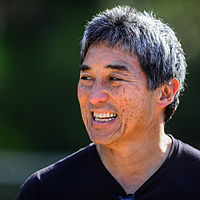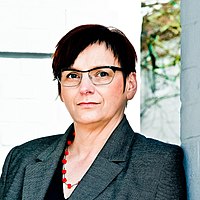Vote of no confidence; WMF trustees speak out
Calls are growing in the Wikimedia community to oust newly appointed Wikimedia Foundation Board of Trustees member Arnnon Geshuri, due to his involvement in the High-Tech Employee Antitrust Litigation controversy (see previous Signpost coverage). On January 20, Fæ called for a vote of no confidence on Meta, which proposes that "in the best interests of the Wikimedia Foundation, Arnnon Geshuri must be removed from his appointment as a trustee of the Wikimedia Foundation Board." The vote has attracted 70 support votes in just over 24 hours. Two current and former members of the board have already participated. Current trustee Guy Kawasaki was the first to oppose, doing so with a newly created Meta account. He has not yet provided the rationale for his vote, despite calls to do so from other participants. Former chair of the board Florence Devouard was the 16th support vote and linked to a statement on the Wikimedia mailing list that read, in part:
| “ | Learning the whole story about Arnnon was a disappointment to me as it means the board selection process is not working as it should be (for a mature organization as WMF ought to be by now). If the screening process had been done properly, I believe the board would have refrained from selecting him, or at least would have taken the time to address the issue before any appointment announcement. ... Either the board is completely paralyzed and no more able to make any decision as to what they should do. Or the board has decided not to provide any feedback, which I consider completely disrespectful to the community and unhealthy generally. | ” |
On Sunday January 24, Trustee Alice Wiegand (Lyzzy) published a blog post in German entitled "Silence" (translation). The post shows signs of strong disappointment at the way in which the Board has handled the recent upheavals ("we're not currently having a good run"). She writes: "There has been widespread incomprehension, frustration, helplessness, and anger, culminating recently in a no-confidence vote. And the Board of Trustees is silent." In a metaphorical passage, she speaks of the effect that silence can have: "It paralyzes, irritates, and harms".
| “ | While the community quickly judged the situation on the mailing list, the Board had to reflect on the situation. What facts did we have, what does Arnnon say, why was this matter not considered in the selection process? Would it have been different if the committee had known about his background? Could we have published a short message at that stage with a note that we're following the [community] discussions, reflecting on the issues, but still need some time before we can make a statement. Yes, we could have done so, and we should have. | ” |
Although Wiegand writes there is much about the ongoing community discussion that she doesn't agree with, to her, it "clearly demonstrates how sensitive the community is to our decisions, how strongly it fears that major changes are being pushed through without its input, and how big the loss of confidence in the Board as an institution has become. Some of it is rooted in misguided ideas about the methods and extent of the Board's decisions. Once again it shows that we’ve still not managed to communicate [with the community] our self-conception as a Board of Trustees, our tasks and our ideas in a clear way."
Wiegand says that the Board is preparing a statement on the Geshuri appointment that she plans to contribute to personally. "Most of all, we have to stop self-centered introspection, and tackle the actual questions around free knowledge."



